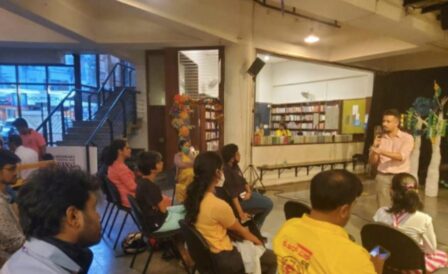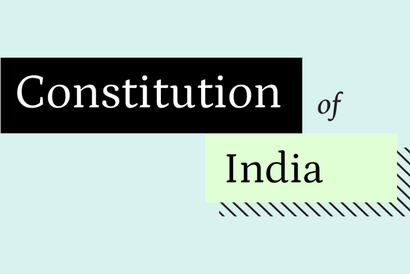The Centre for Law and Policy Research (CLPR) has collaborated with Ranga Shankara to hold a series of conversations on the Indian Constitution and its history as part of the latter’s public outreach programme—RS Connect.
On 6 August 2022 we held the second public talk in this series. CLPR resource persons delved into the Indian Freedom Movement and emphasized that it was more than just a call to free Indians from British rule. The session further demonstrated that the Indian Constitution – specifically the Fundamental Rights chapter – was forged in the crucible of India’s independence movement.

CLPR Senior Associate Vineeth Krishna began the session with a simple inquiry—what exactly are we celebrating when we celebrate Indian Independence Day? Were we celebrating the fact that we were independent or the freedom movement that brought us independence? He explained that it was the movement. This provided the impetus to explore the unique qualities of the Indian freedom movement, particularly how this extraordinary political movement also had a radical vision for the socio-economic transformation of the Indian society.
Vineeth then took the audience through the tumultuous 1931 Karachi Congress and the Karachi Resolution which was a Historical Constitution that had provisions for socio-economic rights. This provided a glimpse of how leaders of the movement, like MN Roy and Jawaharlal Nehru, were deeply invested in ensuring socio-economic rights were a part of our constitutional future.
He next drew the connection between the Indian Independence Movement and the Indian Constitution. He explained how the experiences of the Constitution framers during the Freedom Movement shaped the way they framed fundamental rights provisions in the Constitution. For instance, the bleak experience of being slapped with sedition cases under the British led to the Framers opposing ‘sedition’ as a limitation on freedom of speech.

Vineeth then concluded that there was a need to celebrate Independence Day on August 15 with the understanding that the freedom movement not only sought an end to British rule, but also an end to India’s deep rooted socio-economic hierarchies like caste and class. The movement called for a concerted effort to transform Indian society from its feudal past to a progressive society where individuals and communities were empowered with socio-economic rights enshrined in the Constitution.
The talk was followed by a lively question-answer session with the audience.


